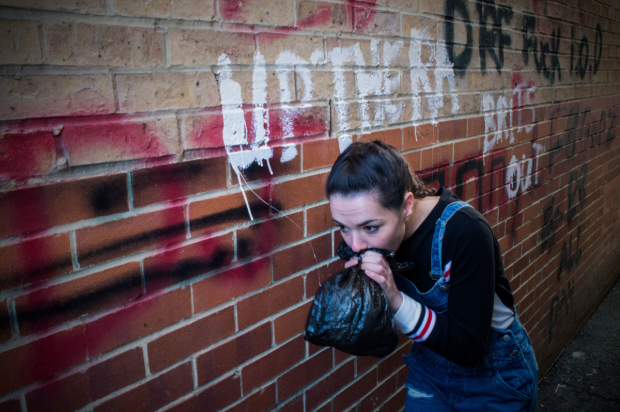Edinburgh Fringe may claim to be open to all, but money dictates access
As she prepares for the Edinburgh Fringe with her show ”Killymuck”, writer and director Kat Woods talks about the financial difficulties of heading to the festival

© Javier Ortega Saez
I'm always asked: "What do you really do?" or "What's an Irish person like you, doing working in an Indian Restaurant in London?"
My listening devices have regularly been assaulted with jokes about the famine, about potatoes, and with thick/drunk Paddy snipes. I've had my accent mocked to my face with the wrong region – some people don't quite comprehend that I'm from a county roughly 100 miles outside of Belfast. Belfastonian is not the generic Northern Irish accent.
Although my Irishness does offend some, at work it's not the biggest problem. Customers are more confused by the fact that I am a theatre-maker, subsidising my income in a job that falls into the lower class tier of acceptable employment for the educated.
"You've had success…no? Why would you need to waitress?"
I will be going to the festival in debt and living off a credit card.
For the past year I have been saving for the Edinburgh Fringe Festival. It's costing me roughly £8000. It claims to be "an open access festival" but money dictates access. I've mostly financed this Fringe by working 45 hours over four days a week in a restaurant. This gives me three days off to focus on theatre.
My plays have been well received and picked up for transfers to Finland, London, Ireland, Wales, New York and Baltimore. I have had success in the past and yet I will be going to the festival in debt and living off a credit card. To keep costs down, I've even turned my bedroom into a rehearsal space which has created a furniture obstacle course in the hall.
I grew up on benefits and lived on a council estate in Northern Ireland when the Troubles were still bubbling. Impoverishment, addiction, domestic violence and fatal tragedies have all collectively created a barrier to success. These obstacles slow down progress when trying to navigate a world that gives opportunity to the wealthy.
The industry is elitist. This is why the underclass are not represented on the stage or behind the scenes
So I have come into this world at a latter stage of my life. Theatre was a luxury that we couldn't afford and drama simply was not something that the Catholic schools in my town offered. Prospects within theatre usually begin with unpaid internships or entry level schemes that have a cut off age limit. These opportunities are frankly out of reach for many people.
We know that opportunity is not offered on a meritocratic basis and that the wealthy are more likely to succeed. The industry is elitist. This is why the underclass are not represented on the stage or behind the scenes. So what shall we do about it? The Arts Council need to make things easier in terms of funding opportunities for the underclass and the working class. Theatres need to commission more diverse artists. Producers need to be more inclusive and produce underclass/working class narratives. Publishing houses need to print our words. We need to change the propagated ideology that underclass/working class theatre makers are a financial risk.
All of this is doable if we choose.
Killymuck runs at Underbelly, Bristo Square – Jersey, from 1 to 27 August at 6:25pm
Read all our Edinburgh Festival coverage

© Javi Ortega Saez


















